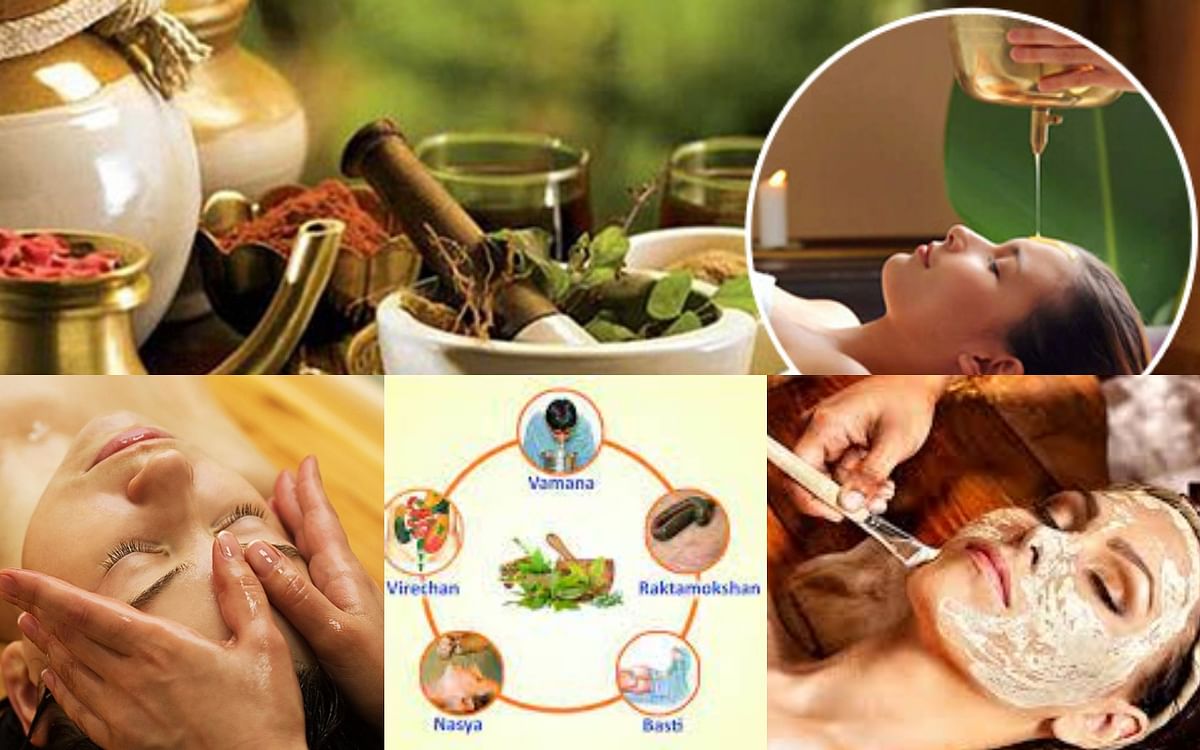Panchakarma Treatment: Panchakarma, which is derived from Sanskrit, translates to “five actions” or “five remedies”. “It is an excellent cleansing process that draws out accumulated toxins and restores the body’s natural healing abilities. According to experts it is a comprehensive system of purification methods that are used to cleanse all unwanted waste from the body and balance the body, mind and spirit. Rooted in traditional Indian medicine, Panchakarma is a comprehensive system of detoxification and healing Provides perspective. Panchakarma heals the root causes of various ailments promoting overall wellness. Learn from the experts what are the different stages of Panchakarma, its advantages and disadvantages in full detail.
What is involved in Panchakarma?
The five primary procedures of Panchakarma include Vamana (emesis therapy), Virechana (purgation therapy), Basti (enema therapy), Nasya (nasal administration of herbal oils) and Raktamokshana (bloodletting therapy).
puke
Vamana: This part of Panchakarma includes internal and external treatments using oil and heat therapy. These treatments are followed by emetic drugs and decoctions that induce vomiting to eliminate the toxins accumulated in the tissues of the body. Vamana is primarily recommended for Kapha predominant conditions such as weight gain, asthma and hyperacidity.
catharsis
Virechana: This involves purifying toxins through bowel movements. This includes internal and external oil treatments followed by a natural laxative to facilitate bowel evacuation, which aids in detoxification. Virechana is mainly recommended for pitta predominant conditions such as herpes zoster, jaundice, colitis and celiac disease.
colony
Basti: Enema therapy, an important contribution of Ayurveda, provides remarkable benefits especially for complex and chronic diseases. Medicated substances such as herbal decoctions, oils, ghee or milk are inserted into the rectum, giving significant positive effects. This treatment is very effective for Vata predominant diseases like arthritis, piles and constipation.
nasya
Nasya: Nasya is highly effective in cleansing and purifying the head region. It involves a gentle massage and fomentation of the head and shoulders, followed by the instillation of nasal drops into both nostrils. This process cleanses the entire head region and provides relief from various conditions such as headache, migraine, sleep disorders, nervous disorders, chronic rhinitis and respiratory ailments.
bleeding
Raktamokshan: It is beneficial for blood purification and is effective against diseases caused by impure blood. It can be done on a specific area or on the whole body. This treatment is particularly effective for various skin infections such as psoriasis and dermatitis, as well as localized lesions such as boils and pigmentation.
How can Panchakarma benefit you?
According to Ayurveda experts, Panchakarma provides many benefits. “It has many health benefits, such as eliminating toxins from the body, improving digestion and metabolism, boosting the immunity system, rejuvenating cells, promoting mental clarity, reducing stress and enhancing overall well-being. It helps in restoring the natural balance of the body.
benefits of panchakarma
Detoxification: These treatments eliminate accumulated toxins and impurities in the body, enhancing the natural detoxification processes.
Balancing the Doshas: Panchakarma helps balance the three doshas—vata, pitta and kapha—which are important for maintaining optimal health and preventing diseases.
Rejuvenation: The therapy regenerates the cells of the body, increases vitality and promotes longevity.
Stress Relief: Panchakarma techniques provide deep relaxation, reduce stress and aid in mental well-being.
Better Digestion: By improving the digestive fire (Agni), Panchakarma enhances the absorption of nutrients and promotes a healthy digestive system.
Immune System Boost: Panchakarma strengthens the immune system, making the body more resistant to diseases.
Anti-aging Effects: The therapy helps in slowing down the aging process and improving the health of the skin.
Which season is right for Panchakarma
Panchakarma can be especially beneficial during monsoons as a person is prone to many types of allergies and diseases during this season. Monsoon is considered the ideal time for Panchakarma. The increased humidity and coolness during monsoons helps draw out toxins from within the tissues, making their elimination easier. Panchakarma during this season can help to boost immunity, provide relief from allergies and increase overall vitality.
What should people keep in mind regarding Panchakarma?
Experts emphasize that beginners should consult an Ayurveda specialist to understand their specific needs and undergo a thorough evaluation before starting Panchakarma. It is also advised to start with a short duration Panchakarma program and gradually move towards a longer treatment as per the recommendation of the physician.
Who should avoid Panchakarma?
Although Panchakarma offers many benefits, it is important to note that it may not be suitable for everyone. According to experts, pregnant women, persons with certain serious medical conditions, people undergoing chemotherapy or radiation therapy and those with severe debility or weakness should avoid Panchakarma.
what to do during panchakarma
-
Consult a qualified Ayurveda Practitioner for personalized guidance.
-
Follow a balanced and nutritious diet as advised during Panchakarma.
-
Engage in mild exercise, yoga and meditation for overall well-being.
-
Take adequate rest and maintain a stress-free environment during treatment.
-
Stay hydrated and drink hot herbal tea.
-
Maintain a positive mindset throughout the process.
What not to do during Panchakarma
-
Do not attempt to do Panchakarma without proper guidance.
-
Avoid heavy eating or junk food during the course of treatment.
-
Excessive physical or mental exertion should be avoided during treatment.
-
Avoid exposure to pollutants.
-
Do not stop any prescribed medicine suddenly without consulting your healthcare provider.
-
Avoid smoking, alcohol and recreational drugs.
-
Minimize exposure to environmental toxins.
-
Avoid excessive consumption of cold or raw foods and beverages.

